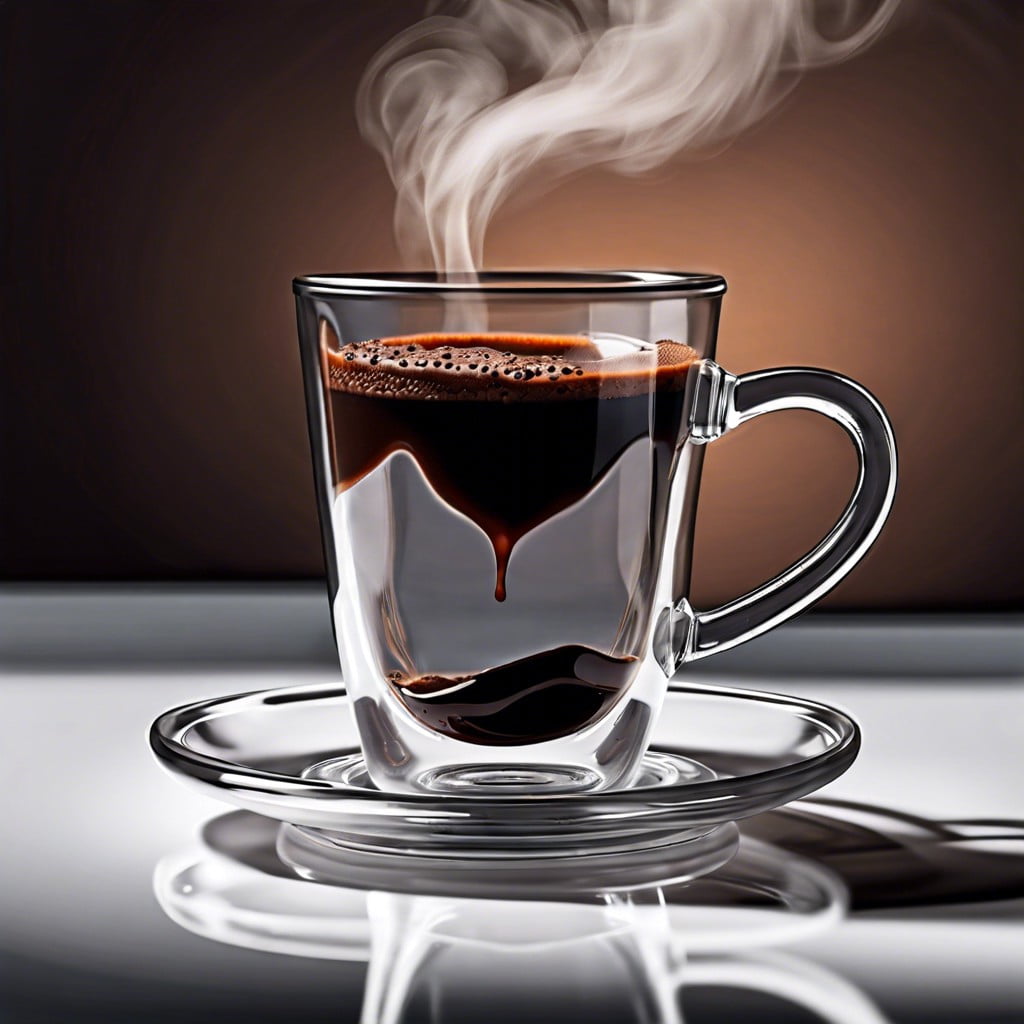Discover whether your coffee habit fits within your fasting routine and how it impacts your health goals.
Black Coffee Won’t Break Your Fast

Sipping on a cup of black coffee during fasting periods is generally acceptable. It contains minimal calories, which means it doesn’t significantly affect your metabolism in ways that would negate the effects of fasting. Here’s a breakdown of why your morning joe won’t derail your fast:
- Minimal Calories: Black coffee has less than 5 calories per cup, a negligible amount that doesn’t trigger a metabolic response to break your fast.
- No Sugar or Fats: Since it doesn’t have sugars or fats, black coffee doesn’t cause insulin levels to rise, allowing you to stay in a fasted state.
- Appetite Suppression: Caffeine is a natural appetite suppressant, which can help manage hunger pangs and may make fasting easier to sustain over longer periods.
Just remember, while black coffee is generally fasting-friendly, going overboard can lead to increased cortisol levels and a jittery sensation, which might make fasting more uncomfortable. Stick to a moderate consumption, and your fast should remain intact.
Coffee May Bolster the Benefits of Fasting
While you’re riding the fasting train, coffee might just be the ticket to boost your journey. Picture this: fasting puts your body on the metabolic expressway to increased fat burning and improved energy levels. Now add a cup of joe to the mix. Coffee, in its purest form, kicks your metabolism into high gear without adding fuel that would typically break a fast.
This beverage isn’t just a wake-up call; it synchronizes with fasting to potentially amplify autophagy – that’s your body’s way of spring cleaning at a cellular level. So, when you’re in a fasted state, sipping on black coffee might just be the metabolic broom that sweeps away more of what you don’t need.
Caffeine itself is a bit of a superstar. It’s been whispered in scientific circles that it can possibly enhance certain fasting-induced benefits. Think about improved brain function and alertness. In other words, it’s the wind beneath your cognitive wings during fasting.
Keep in mind, though – moderation is the secret ingredient in this recipe. Too much caffeine could have the opposite effect, leading to jitters or an upset stomach, which isn’t ideal when your stomach’s already singing the empty bowl blues.
Added Ingredients Could Reduce Fasting Benefits
Pouring sugar, cream, or milk into your coffee adds calories, which can negate the calorie restriction component of your fast. These additions can also prompt an insulin response, which shifts your body out of the fasted state. Many fasting purists stick to black coffee to avoid this pitfall.
Artificial sweeteners, though calorie-free, can trigger similar insulin reactions and potentially disrupt the gut microbiome. This alteration could interfere with one of fasting’s goals: improved gut health.
Bulletproof coffee, a popular companion for intermittent fasters, combines coffee with butter and oil. While it has its proponents, the high fat content contributes a significant calorie load, which might break a strict fast.
To keep your fasting efforts on track, it’s wise to reconsider these additions. Remember, black coffee is your ally; dress it up too much, and you might be inadvertently sabotaging your hard work.
Should You Drink Coffee While Fasting?
Deciding whether to drink coffee during fasting hinges on individual goals and responses. If you’re fasting for blood sugar control or to curb appetite, a plain cup of joe might be your ally, giving you a calorie-free pick-me-up without derailing your efforts.
For some, however, caffeine can stir up hunger pangs or bring on the jitters. Monitoring your body’s signals is key. Fasting isn’t a one-size-fits-all; tune in to what works for you personally.
Moreover, be cautious of what goes into your coffee. A splash of milk or a spoonful of sugar can stir the caloric pot, potentially negating the fasting state. Keep it simple to stay on the safe side.
Remember, the aim is to maintain a fast while incorporating coffee in a way that aligns with your objectives. Play it smart, and you can enjoy your brew without breaking stride in your fasting journey.
The Bottom Line
So, you’re deep into your fast but grappling with the coffee conundrum—go ahead and pour that steaming cup of joe if it’s black. A consensus among experts suggests pure, black coffee is generally fasting-friendly; it shouldn’t toss you off the fasting wagon. Drinking it in moderation could even give your fasting objectives a leg up, from enhancing metabolic rate to ramping up fat oxidation.
But here’s the kicker: watch out for the extras. Cream, sugar, or your favorite syrup can invite unwanted calories, potentially disrupting your fast’s metabolic magic.
To sip or skip? If your fasting strategy is flexible, a modest intake of black coffee could shake hands with your goals. However, if you’re on a strict regimen, especially for blood work or medical purposes, skipping the java might be your best bet.
Stay in tune with your body. If you notice coffee gives you an edgy feeling or interferes with your fast-driven focus, consider steering away. Everybody dances to a different tune, and so should your fasting rhythm.